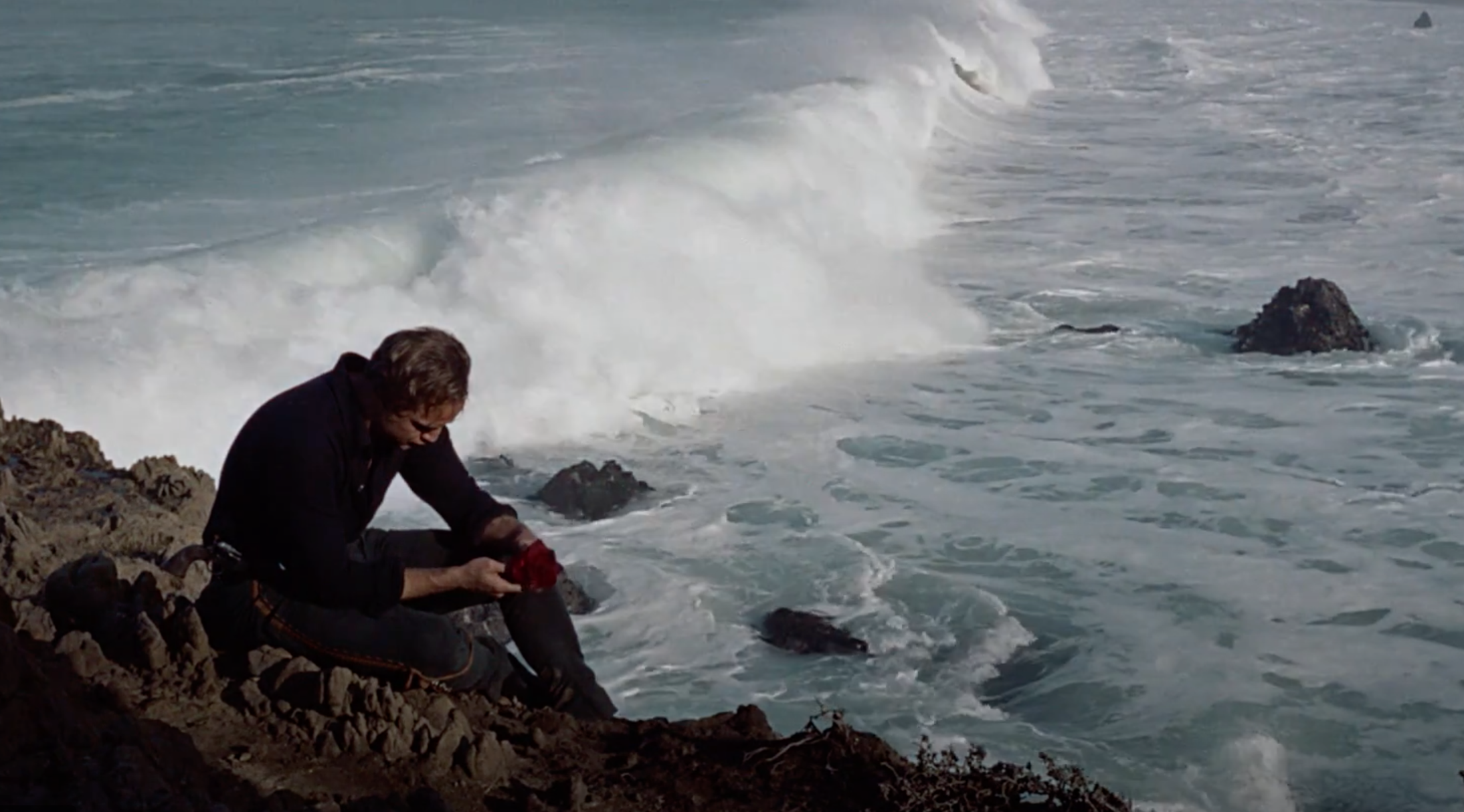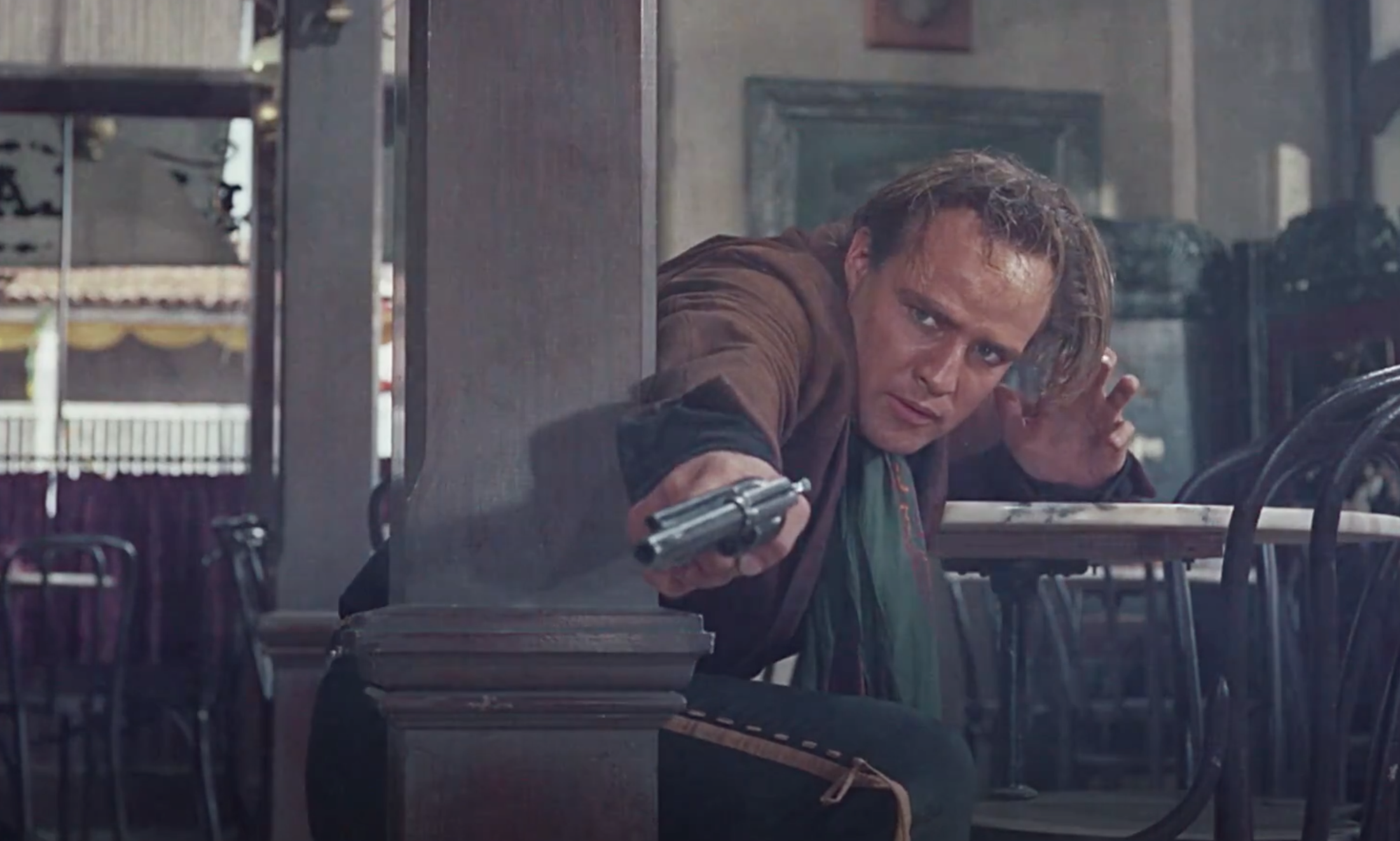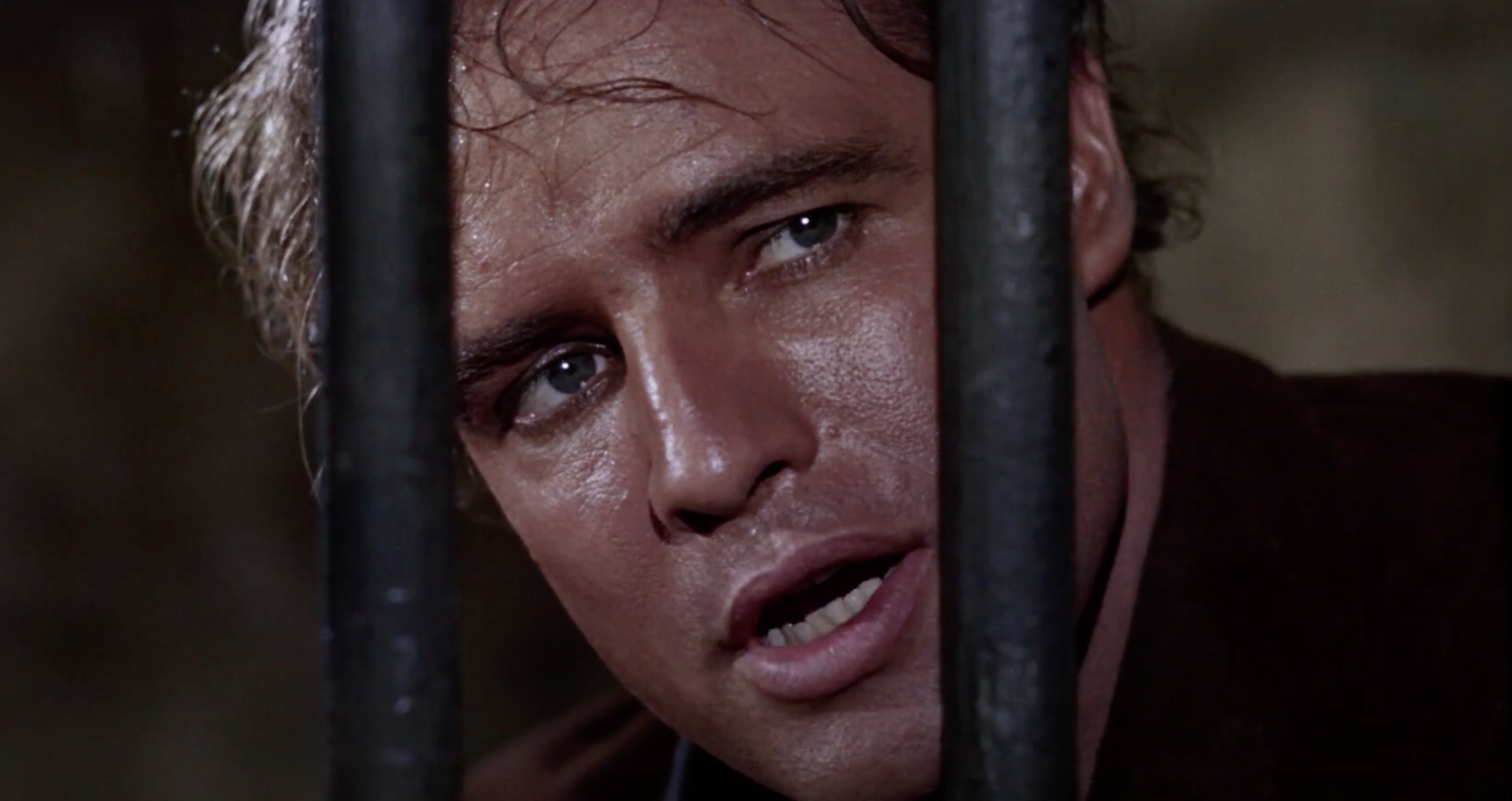I’m a fool for slick, modernized trailers of classic films, and Lord knows there are easily a couple hundred out there. But when Dan McBride’s One-Eyed Jacks trailer surfaced four years ago, I knew right away that it was triple grade-A. McBride: “[Looking to] breathe new life into older, forgotten or overlooked films. Mainly to spread awareness and hopefully inspire more people to seek them out.”
“Musical Score as Strong Supporting Character,” posted on 6.17.19:
I’ve written a few times about the four different kinds of film scores — (a) old-school orchestral, strongly instructive (telling you what’s going on at almost every turn), (b) emotional but lullingly so, guiding and alerting and magically punctuating from time to time (like Franz Waxman‘s score for Sunset Boulevard), (c) watching the movie along with you, echoing your feelings and translating them into mood music (like Mychael Danna‘s score for Moneyball), and (d) so completely and harmoniously blended into the fabric of the film that you’ll have a hard time remembering a bridge or a bar after the film ends.
We all understand that the era of classic film scores — composed by Miklos Rosza, Bernard Herrman, Waxman, Max Steiner, Maurice Jarre, Alex North, Dimitri Tiomkin, Bronislau Kaper, Ennio Morricone, Leonard Rosenman, Nino Rota, Elmer Bernstein, Alfred Newman, Hugo Friedhofer and Jerry Goldsmith — is over and done with. Their work (i.e., the artful supplying of unmissable emotional undercurrents for mainstream, big-studio films that peaked between the mid 1930s and late ’70s) belongs to movie-score cultists now. It’s sad to contemplate how one day these awesome creations will be absent from playlists entirely.
But I’ve always enjoyed these movie symphonies the most because their composers — most of them classically trained and European-born — didn’t just write “scores” but created non-verbal, highly charged musical characters. They didn’t watch the film in the seat beside you or guide you along as most scores tend to do — they acted as a combination of a Greek musical chorus and a highly willful and assertive supporting character.
These “characters” had as much to say about the story and underlying themes as the director, producers, writers or actors. And sometimes more so. They didn’t musically fortify or underline the action — they were the action.
If the composers of these scores were allowed to share their true feelings they would confide the following before the film begins: “Not to take anything away from what the director, writers and actors are conveying but I, the composer, have my own passionate convictions about what this film is about, and you might want to give my input as much weight and consideration as anyone else’s. In fact, fuck those guys…half the time they don’t know what they’re doing but I always know…I’m always in command, always waist-deep and carried away by the current.”



